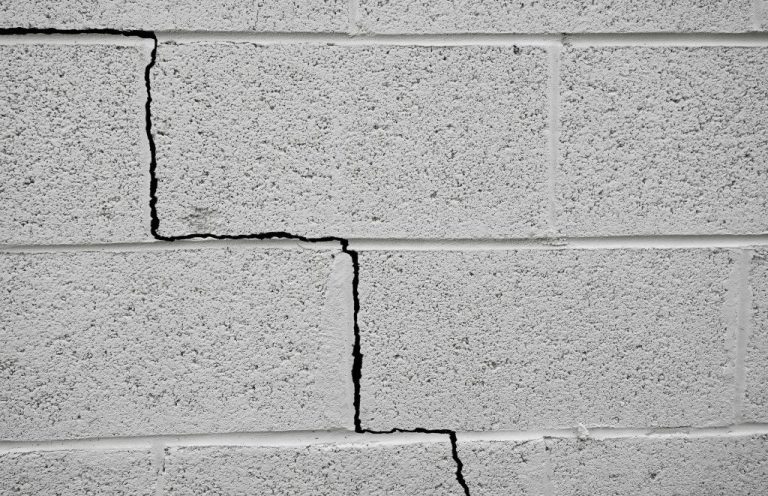- Earthquakes can cause significant damage to residential properties, particularly in certain U.S. states.
- Damage may occur to home foundations, structures, gas lines, and electrical systems and can cause water leaks.
- Regular inspections by professionals can help prevent extensive damage from earthquakes.
- Improvements such as bolting, bracing, seismic straps, earthquake shut-off valves, and updated windows can reinforce homes.
- Keeping emergency supplies and an evacuation plan ready is crucial for earthquake readiness.
Earthquakes are natural disasters that can occur anywhere and at any time. They can be incredibly destructive and potentially cause significant damage to properties. If you are a homeowner, it is essential to understand the ways an earthquake can affect your home so that you can take the necessary precautions to keep your property and your family safe. Here’s what you need to know about earthquakes in the U.S., how they can affect your home, and ways to improve it over time.
Earthquakes in The U.S.
Earthquakes aren’t prevalent in the U.S. but occur in certain areas. The most at-risk states include California, Alaska, Hawaii, Washington, Oregon, Idaho, Montana, Nevada and Wyoming. Earthquakes can happen anywhere there is a rupture in the earth’s crust or fault line. While earthquakes in these states are more common than others nationwide, that doesn’t mean other areas are immune. Earthquakes can happen in any state, so it’s important to be aware of the potential risks and take steps to protect your property from an earthquake.
How an Earthquake Can Impact Your Home
An earthquake can potentially cause significant damage to your home. Here are some ways an earthquake can affect your home:
1. Foundation Damage
One of the most common ways an earthquake can affect your home is by causing damage to its foundation. This is because the ground moves during an earthquake, and the force of this movement can cause cracks in the foundation.
Once the foundation is compromised, it can lead to other structural issues that are difficult and expensive to fix. To prevent this, it is essential to have your home’s foundation inspected regularly by a trained professional and to reinforce it if necessary. Additionally, you must have robust concrete footings. These footings are crucial for restraining the foundation and preventing it from shifting during an earthquake.

2. Structural Damage
Aside from foundation damage, an earthquake can also cause structural damage to your home. This includes damage to walls, ceilings, floors, and roofs. Depending on the severity of the earthquake, the damage could be slight or significant. To prevent significant damage, it is essential to reinforce the structure of your home by installing metal connectors between the roof and walls and securing the home to its foundation.
3. Gas Leaks
Another way an earthquake can affect your home is by causing gas leaks. The movement of the ground can cause gas lines to become damaged, potentially leading to gas leaks. This is a significant concern because natural gas is incredibly flammable and can ignite at anytime. To prevent this, it is essential to have a professional inspect your gas lines regularly and install an earthquake shut-off valve. This valve will automatically shut off the gas supply in an earthquake.
4. Electrical System Damage
An earthquake can also cause damage to your electrical system. This includes damage to wires and circuits that can lead to power outages or even fires. To prevent this, it is essential to have your home’s electrical system inspected regularly and install surge protectors and ground fault circuit interrupters (GFCIs) where necessary.
5. Water Damage
In addition to the aforementioned damages, an earthquake can cause water damage in your home. This occurs when water lines break or leak, leading to flooding. To prevent this, it is important to have a plumber inspect your water lines regularly and reinforce them where necessary.
Ways to Improve Your Home Against Earthquakes
Although earthquakes are unpredictable, there are ways you can improve your home to ensure it is better prepared for an event. Here are some ways to strengthen your home against earthquakes:

1. Bolting and Bracing
Bolting and bracing your home is a great way to reinforce its structure and help prevent significant damage during an earthquake. This involves anchoring the home to its foundation with metal rods and installing prefabricated braces between the roof and walls of your home.
2. Seismic Straps
Seismic straps are also an excellent way to improve your home’s earthquake resistance. These straps are designed to secure your home’s water heater, gas tanks, and furnace to the floor or wall. This will help prevent these items from falling and potentially causing injury or damage during an earthquake.
3. Earthquake Shut-Off Valves
Another way you can improve your home’s earthquake resistance is by installing an earthquake shut-off valve. This valve will automatically shut off the gas supply in an earthquake, helping to prevent fires and explosions.
4. Updated Windows and Doors
If your windows or doors are not up to code, replacing them with updated ones is essential. This will help prevent broken glass from forming during an earthquake and reduce the risk of structural damage by keeping your home better sealed.
Earthquakes can be incredibly destructive, but there are steps you can take to protect your home and family. Understanding how an earthquake can affect your home and taking the necessary precautions can help ensure your property is better prepared if one occurs. In addition to making sure your home is up-to-code structurally, it is crucial to have emergency kits on hand with essential supplies in case of an earthquake so you can stay safe and prepared. Additionally, it is essential to have an evacuation plan in place that your family can follow if necessary. These measures will help ensure your home is better equipped for an earthquake.

